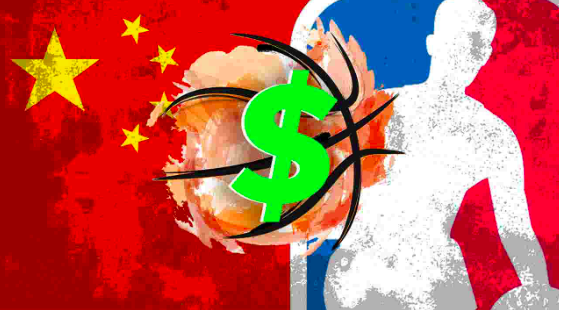By Yujie Wang || Contributing Writer

Photo courtesy of usatoday.com.
October 4th, Daryl Morey, the general manager of the Houston Rockets of the National Basketball Association (NBA) posted a tweet regarding recent Hong Kong protests: “Fight for Freedom. Stand with Hong Kong.” By October 7th, this tweet’s influence has spread out and caused the Chinese public to boycott the NBA.
This is not the first time that a foreign managerial member of major companies invoked boycotting emotion by going against Chinese public sentiment about national sovereignty. D&G faced problems related to their ads, while region-allocation controversy of other luxury brands, like Versace, have already showed influential impacts of Chinese’s attitudes on national sovereignty. As such in case of D&G, it has been a usual thing to cater to the Chinese public emotion. According to NPR News, Domenico Dolce and Gabbana released a video on Nov. 23, 2018 in which they express their love for China and say “sorry” in Mandarin.
To understand the great tension which happens quite often regarding this China’s sovereignty, we need to take a closer look at how Chinese people in general think about the issue. In China, sovereignty issue is like racism in the US–there is an open admitted political rightness about Hong Kong and Taiwan case. Any statement which contained meaning of disproving “One China” principle is not socially acceptable as a Chinese citizen. The uniformity on which it is defined is on par with what people envision of human rights. Imagine if a managerial role of a Chinese well-known franchise posted some public content about racism, what reactions would both sides have? Chinese public usually will not forbear overlooking of this cultural regulation if foreign companies or organizations do not place substantial penalty on the particular employees. Westerners usually make humble gestures after improper speeches in case of riling Chinese customers up. It all about Chinese solid capital behind the whole ‘apology’ process, which gave China the power to strengthen their attitudes. Briefly saying, it’s all about money.
China’s state-run institutions suspended ties with the Rockets on Oct. 6, when Morey returned to Twitter to say he didn’t intend to cause offense. However, anger of the public from Chinese market was not easily appeased. The condition continued to get controversial when NBA commissioner Adam Silver responded the media by saying the decision not to address any alteration on Morey’s statement. According to NBA.com, on October 8th, Adam Silver claimed that “the NBA will not put itself in a position of regulating what players, employees and team owners say or will not say on these issues.” This statement gave an official signal that the NBA will not apologize or penalize Morey for his tweet.
Why did the NBA choose such a response, different from those “D&G”s, which would obviously irritate Chinese? Besides free-speech factor in his content, the more substantial and persuasive reason would be how the global market contribute to income of the NBA. According to “The NBA’s Business Model” in Investopedia, A majority of revenue generated by the NBA and its subsidiaries is classified as Basketball Related Income (BRI). Basketball related income includes broadcast rights, advertising, merchandising, and concessions, among other things. In June 2015, the NBA decided to end its partnership with Adidas and signed an eight-year, $1 billion contract with Nike (NKE). In February 2016, ESPN announced a nine-year, $24 billion media rights deal with ESPN and Turner Sports. Even though the NBA has constantly carried out international expansion in Europe and China, the US is definitely its major income source besides any other region. Now why Adam Silver making such an announcement. Perhaps it is a measure to protect its local market. How much “free speech” part count for this decision? We do not know. We do know, from this case, that in capitalist’s world, it is easy to see how to play the game.
Nowadays, technology brings nations together into this global community and conflicts between culture happen very often. The great attention from China in this case exactly proves that connections among people all over the world are getting closer and closer. It is definitely important for us to think critically in different perspectives.
Senior Yujie Wang is a Contributing Writer. Her email is ywang7@fandm.edu.